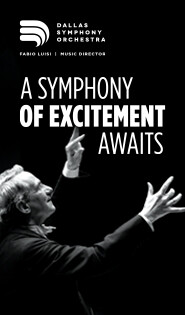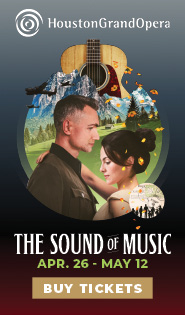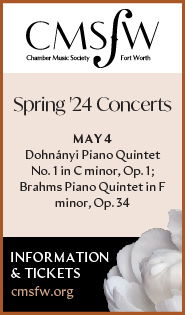Merry wives provide the happiest moments in HGO’s “Falstaff”
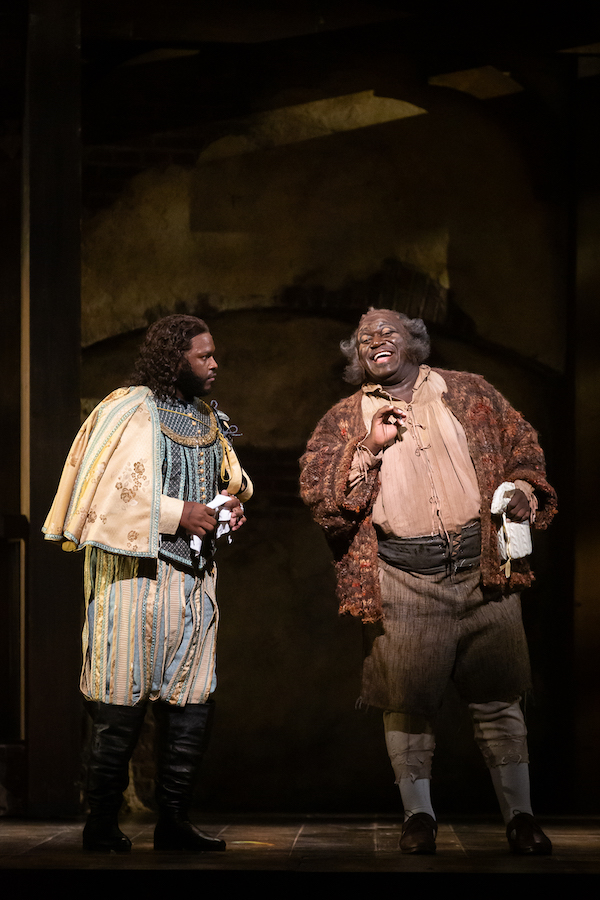
When the stage went dark Friday night at the end of Verdi’s Falstaff, one beacon of light remained: the composer’s own florid signature, beamed onto the drop that served as the curtain.
If there is any occasion when Verdi himself deserves a parting salute, a performance of Falstaff may well be it. After devoting himself for decades to weighty drama, Verdi turned to Shakespeare’s overfed, oversexed knight and said goodbye to opera with a comedy—its music an ever-shifting mixture of rowdiness, sparkle, poetry and mirth.
Houston Grand Opera’s production, which opened Friday at Wortham Theater Center, had many of the ingredients of Verdi’s romp in place.
Conductor Patrick Summers spurred the HGO Orchestra to zip through the score with gusto and brightness. Designer Adrian Linford’s sets evoked, in stylized form, the half-timbered houses and earthy pubs of a storybook British town. Stage director Paula Suozzi laid out the comic hijinks clearly, even amid the whirlwind pursuit of Falstaff that climaxes Act 2. And the cast’s women contributed the lightness, warmth and humor that befitted their roles’ joint moniker, bestowed by Shakespeare, of Merry Wives.
But the two principal men threw the mixture off balance.
Reginald Smith, Jr. in the title role boasts a dark-hued, walloping baritone—easily filling the music’s big moments as with Falstaff’s delusions of grandeur. Yet for this Fatstaff, full-throttle was the default mode, one Smith rarely diverged from for long.
Smith was capable of singing more quietly. He brought a modicum of lightness to “Quand’ ero paggio”—Falstaff’s reminiscence of being a slender youth—and he scaled down his voice to a sort of dejected growl in the humiliated Falstaff’s brooding at the start of Act 3.
But his voice more often boomed, even when that worked against the music. As Falstaff played the romancer, wooing Alice, Smith belted out turns of phrase that needed at least a semblance of smoothness.
Blake Denson had an equally big baritone yet proved a similarly unsubtle Ford. He lashed out ferociously in “E Sogno?”—Ford’s tirade about women’s unfaithfulness. After he learned his suspicions were unfounded, though, Denson hardly offered the softer tones that would have revealed Ford’s contrition—or would have conveyed his affection for his daughter even after she thwarted his plans to marry her off to one of his buddies.
The deftness of the women performing alongside Smith and Denson made their heavy-handed vocalism all the more obvious.
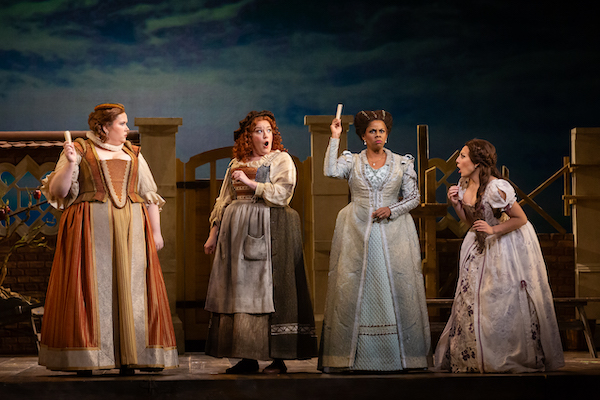
As Alice Ford, the No. 1 object of Falstaff’s desires and the ringleader of the plots against him, soprano Nicole Heaston dispatched Verdi’s crisp, speedy music with spirit. The pizazz she put into “Gaie comari di Windsor”—Alice’s brief kickoff of the first trick on Falstaff—set the tone for the ensuing antics. Only in Alice’s Act 3 evocation of the mythical Black Huntsman, where the eerie music lies low, did Heaston fail to project.
Mezzo-soprano Jennifer Johnson Cano may not have commanded the low contralto register that some mezzos can bring to Mistress Quickly, who reels Falstaff in for his comeuppance, but she still brought her scenes to life. When Quickly met with Falstaff to set the trap, Cano’s hearty tones put over Quickly’s tales about Alice pining for Falstaff. Cano’s dashes of gentleness and finesse helped conjure up the attractions of Alice and Falstaff’s other romantic target, Meg Page.
While Verdi didn’t give Meg any real moments in the spotlight, mezzo-soprano Emily Treigle still enabled her to lend spunk to the conspiracy.
And as Nannetta, the Fords’ daughter, soprano Andrea Carroll lavished generous lyricism and silvery tone in the opera’s one strand of genuine romance. In the last scene, as Carroll’s voice floated through Nannetta’s aria, “Sul fil d’un soffio etesio,” she and the orchestra murmuring beneath her created the most magical moments of the entire performance.
Playing Nannetta’s sweetheart, Fenton, Jack Swanson complemented Carroll with the vigor and ring he brought to their romantic moments. And in his short aria opening the finale, Swanson added a poetic touch by tapering off phrases to a whisper—though he nearly disappeared beneath the orchestra.
Given that Dr. Caius, whom Ford wants Nannetta to marry, is in a state of agitation from Falstaff’s very beginning, tenor Martin Bakari’s pungent tone suited him. Tenor Michael McDermott and bass Daniel Noyola cut lusty figures as, respectively, Bardolf and Pistol, who start as Falstaff’s drinking buddies but end up helping to trick him.
The speed and intricacy of Falstaff’s quicksilver music yield both its magic for audiences and its challenges for performers. Except for Ford and his buddies sounding faint in the Act 2 ensembles, where they should have been bursting with energy, Summers generally had his forces well in hand. Beyond underlining the opera’s breeziness, the orchestra summoned the agility to propel the rollicking Act 2 climax and the chattering prelude to Act 3. The women of the HGO Chorus chimed in sweetly with Nannetta, and the entire mass of principals and chorus dispatched the final fugue heartily.
The orchestra also must have earned some kind of award for doing yeoman’s service. Besides earning its pay with Verdi’s famously virtuosic score, it in effect played a mini-concert of early Verdi. How did that happen? HGO combined Falstaff’s first two acts before stopping for intermission. That could have left the audience sitting in silence through three scene changes.
During the three breaks, Summers and the orchestra plunged into three vigorous numbers: the preludes to La Battaglia di Legnano and Un Giorno di Regno, and the “Autumn” part of the ballet music from The Sicilian Vespers.
The orchestra filled them with flashiness and dynamism. Compared to that more visceral music, Falstaff and its sonic kaleidoscope seemed to belong to a different world. That, of course, is what makes Falstaff a miracle.
Falstaff runs through November 10. houstongrandopera.org
